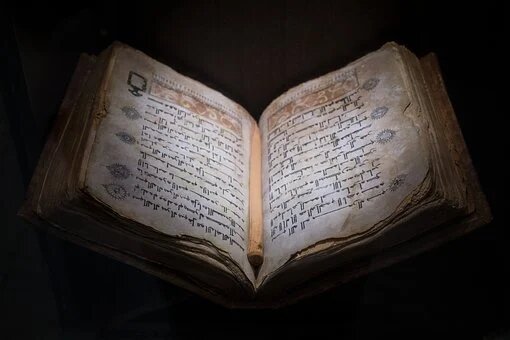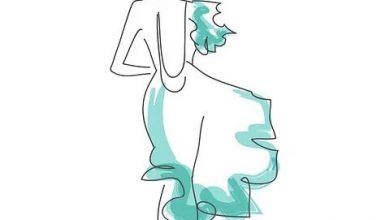
‘The Exact Moment I Became a Poet’ is a poem by Paula Meehan. Meehan is known for her witty and playful approach to poetry. For the first time, the young poet realized that words are extremely powerful and can cause significant psychological harm. The poem talks about how the teacher’s remark appeared to degrade the poet’s working-class family and neighbours. The girls were warned that they might end up working in the sewing factory. Nonetheless, the poet recognizes that the teacher was correct, and she pursues education while resenting the snobbery that elevates one job over another. The poem discusses how words can be extremely painful and expose unpleasant realities. Paula Meehan’s poetry is heavily influenced by the complexities of family relationships. Buying Winkles and The Pattern are some of her popular poems, the analyses of which may be accessed in the link below:
Analysis of Buying Winkles by Paula Meehan
Analysis of The Exact Moment I Became a Poet by Paula Meehan
The Exact Moment I Became a Poet | Summary and Analysis
‘The Exact Moment I Became a Poet’ brilliantly captures a child’s mentality. Meehan was an 8-year-old student at Central Model Girls’ School on Gardiner Street when this poem was written in 1963. Meehan describes a pivotal moment in her childhood in this poem, a time when she first realized the power of words. She is acutely aware of social disparities. She realized that people in her part of Dublin’s inner city were denied the same opportunities as those in the city’s more affluent areas. The poem also touches on women’s strength and power, which is a recurring theme in Meehan’s work.
The Exact Moment I Became a Poet, Lines 1-9
was in 1963 when Miss Shannon
rapping the duster on the easel’s peg
half obscured by a cloud of chalk
said Attend to your books, girls,
or mark my words, you’ll end up
in the sewing factory.
It wasn’t just that some of the girls’
mothers worked in the sewing factory
or even that my own aunt did,
The poet brilliantly captures the image of a typical classroom scene – the teacher banging her duster amid a cacophony of chalk dust. Miss Shannon’s words infuriated the young poet. She describes the sewing factory as a worthless and unappealing workplace. Some of her classmates’ mothers worked there. These classmates would undoubtedly be embarrassed if their mothers’ workplace was mentioned in this manner. Indeed, the young poet was embarrassed by the fact that her aunt, as well as a number of her neighbours, worked in the same factory. The poem brilliantly captures the mindset of a child. Even if they lack the words to express such concepts, eight-year-old children can understand concepts like “labour” and “dignity,” according to Meehan’s poem. It also serves as a reminder that children have exceptionally vivid imaginations, which can lead to strange and disturbing fantasies.
The Exact Moment I Became a Poet, Lines 10-18
and many neighbours, but
that those words ‘end up’ robbed
the labour of its dignity.
Not that I knew it then,
not in those words—labour, dignity.
That’s all back construction,
making sense; allowing also
the teacher was right
and no one knows it like I do myself.
Miss Shannon’s use of the phrase ‘end up’ particularly irritated the young poet. She realized that this phrase implied an unfavourable outcome. It implied that those who worked in the sewing factory were failures in life. They are stuck in low-paying, meaningless jobs that no one wants to do. However, the young poet believes that the sewing factory’s ‘labour’ has its own ‘dignity.’ She must have realized that, while not glamorous or well-paid, this work was important in its own right. She must have witnessed that the factory’s women took great pride in what they did, producing well-made, long-lasting garments. Miss Shannon’s words had robbed the women of their “dignity” by making their “labour” seem completely pointless and menial, she realized. The poet admits that she’s doing ‘back construction,’ that she’s reconstructing a memory. She uses words like ‘dignity’ and ‘labour’ when she was eight years old. The poet admits that when she was eight years old, she had no idea what these terms meant. She did, however, have a basic understanding of the emotions and concepts that these terms refer to.
Not that I knew it then,
not in those words—labour, dignity.
The poem also touches on the themes of women’s strength and power. She reminds us that in the 1950s and 1960s inner-city Dublin, working women like these – often doing difficult, repetitive work – were the primary breadwinners in their families, bringing in enough money to keep poverty and despair at bay. Looking back, the poet realizes that Miss Shannon was partially correct in her assessment of the sewing factory. Meehan’s personal life experiences have taught her that such factories are exhausting and dehumanizing places to work. Meehan, for one, would not want to work in such an environment for the rest of her life.
The Exact Moment I Became a Poet, Lines 19-27
But: I saw them: mothers, aunts and neighbours
trussed like chickens
on a conveyor belt,
getting sewn up the way my granny
sewed the sage and onion stuffing
in the birds.
Words could pluck you,
leave you naked,
your lovely shiny feathers all gone.
Miss Shannon’s words sparked the young poet’s imagination, resulting in a bizarre and disturbing fantasy. She imagined the sewing factory, complete with its crew of
‘mothers, aunts, and neighbours.‘
Despite accepting the truth of Miss Shannon’s remarks, Meehan insists that the ‘mothers, aunts, and neighbours’ who worked there maintained a sense of ‘dignity.’ She insists that, despite its lack of glamour, their work was valuable and meaningful. The stanza mentions a noteworthy metaphor in which humans are compared to chickens. Their self-esteem is compared to the “lovely shiny feathers”.
that cover the body of a chicken. Hurtful words are likened to hands plucking the chicken’s figures. Plucking hands will leave a chicken naked, completely devoid of feathers. In the same way, hurtful words can strip us emotionally naked, stripping us of our dignity and self-esteem. Meehan, on the other hand, captures the power of hurtful words, such as those spoken by Miss Shannon in that long-ago classroom, to diminish, belittle, and humiliate us. The poet employs a surreal and torturous image of the ‘trussed’ women on the conveyor belt. She imagines that these women had been ‘trussed,’ implying that their legs and arms had been tied together and that they had been placed on a ‘conveyor belt.’ She imagined the women being ‘sewn up,’ as if they were chickens being prepared for the oven:
getting sewn up the way my granny
sewed the sage and onion stuffing
in the birds.
Meehan describes a pivotal moment in her childhood in this poem, a time when she first realized the power of words. She suddenly realized that words could have a significant impact on one’s imagination. Her teacher’s words triggered an image that was not only distressing but also extraordinarily vivid. The poet imagines a procession of helpless women being pushed along a conveyor belt until they reach a monstrous sewing machine that mutilates their bodies one by one. She could see the ‘trussed’ women on the conveyor belt with a strange and disturbing clarity in her mind’s eye for a brief moment. She suddenly realized, too, that words could have a significant impact on one’s emotions. Miss Shannon realized that her comments about the factory had the power to hurt not only the factory workers, but also the factory workers’ daughters, nieces, and neighbours who sat beside her in the classroom, making them feel weak, vulnerable, and exposed.
Even as a primary school student, the poet was acutely aware of social inequity. She realized that people in her part of Dublin’s inner city were denied the same opportunities as those in the city’s more affluent areas. And, of course, this lack of opportunity was passed down from generation to generation. This social inequality is vividly conveyed in the poet’s daydream. Society is compared to a nightmare factory where inner-city Dubliners have processed this inequality generation after generation. The image of these women being ‘trussed up’ depicts their limitations as a result of a lack of opportunity. The image of them being mutilated by a massive sewing machine exemplifies how their disadvantaged upbringing left them mentally and physically scarred.
Words could pluck you,
leave you naked
The Exact Moment I Became a Poet | About the Author
Paula Meehan was born in Dublin in 1955 and still resides there. She went to Trinity College in Dublin and Eastern Washington University in the United States to study. The Marten Toonder Award for Literature, the Butler Literary Award for Poetry, the Denis Devlin Memorial Award, and the PPI Award for Radio Drama are among the many honours she has received. She has five collections of poetry under her belt. Her poetry collections include Return and No Blame (1984), Reading the Sky (1986), The Man Who Was Marked by Winter (1991), Pillow Talk (1994), Mysteries of the Home (1996), Dharmakaya (2001), which received a Denis Devlin Award, Six Sycamores (2004), with artist Marie Foley, and Painting Rain (2005). In 1996, a collection of essays titled Mysteries of the Home was published. Mrs Sweeney (1997), Cell (1999), Kirkle (1995), The Voyage (1997), and The Wolf of Winter are some of her stage work. Artists as diverse as avant-garde composer John Wolf Brennan and folk singer Christy Moore have set her poetry to music. She has worked with dancers, visual artists, and filmmakers throughout her career. Paula Meehan is a member of Aosdána, an Irish writers’ and artists’ organization.




